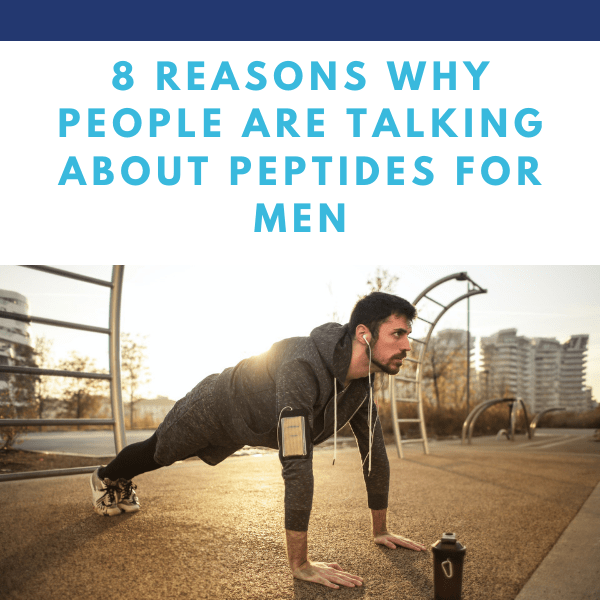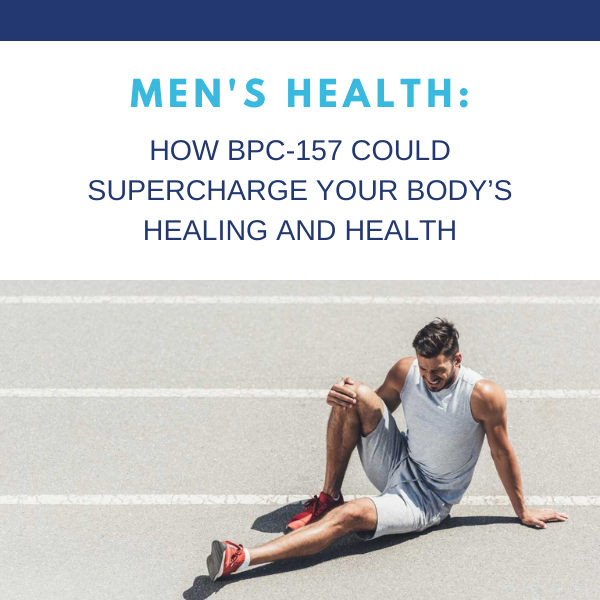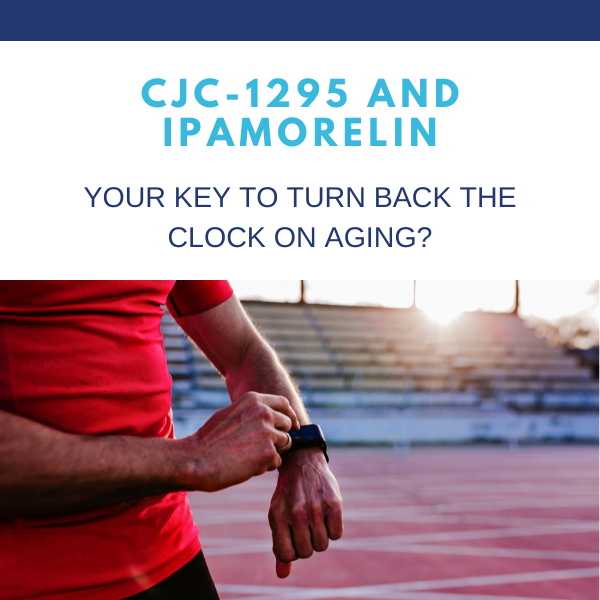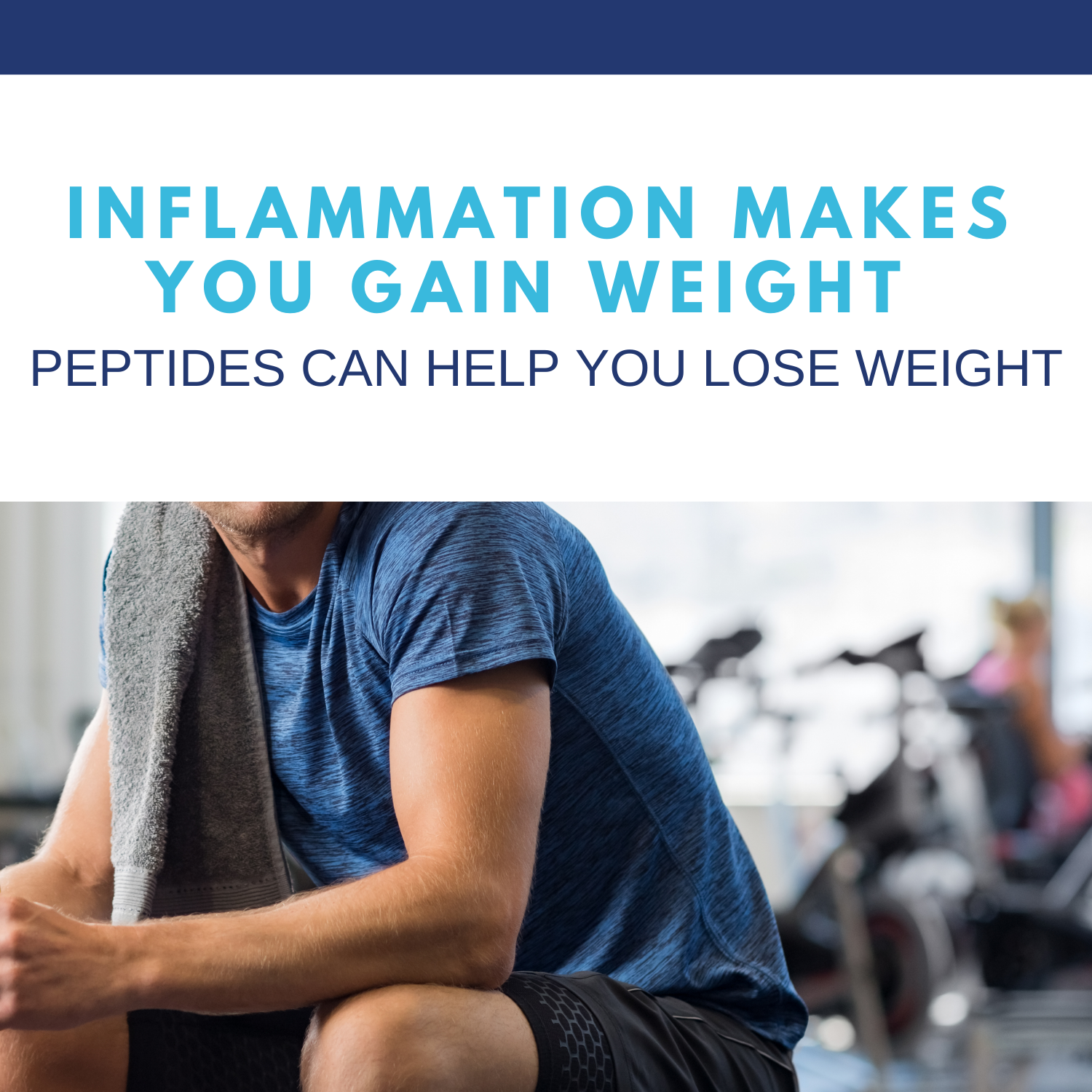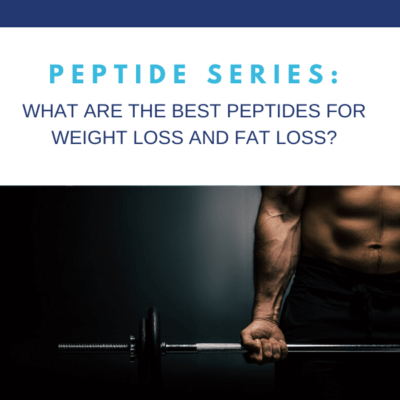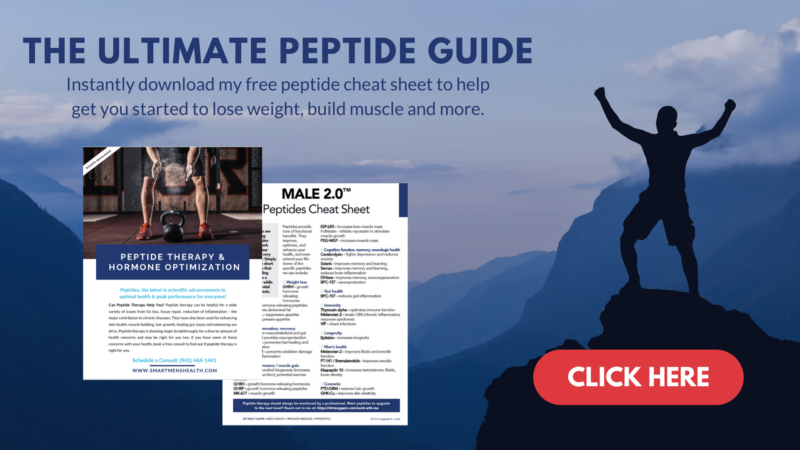Let’s talk about Natural Treatments for Erectile Dysfunction! Steph Lincoln, former Army Captain and host of the Warrior Wellness Podcast, recently sat down with Dr. Tracy Gapin, a urologist and the founder of GAINSWave, to discuss extracorporeal shockwave therapy for ED. GAINSWave is the premium brand of shockwave therapy for ED, performed by a network of highly-trained medical providers.
During the podcast, Dr. Gapin explains how GAINSWave is an all-natural and clinically-proven treatment that uses high-frequency shockwaves to enhance male sexual function, performance, and overall health. It is the only non-invasive procedure that treats the root cause of erectile dysfunction in men by increasing blood flow, releasing growth factors in the tissue forming new blood vessels, and breaking down micro-plaque in the penis.
Dr. Gapin also discusses the prevalence of ED in men, the primary causes, and the natural treatments people can use to address this issue. He emphasizes the importance of identifying and addressing the root causes of ED, rather than just treating the symptoms.
In conclusion, GAINSWave is a promising non-invasive treatment for erectile dysfunction that addresses the root cause of the issue. Dr. Tracy Gapin is a leading authority on men’s health and performance, and his expertise in this area is invaluable for anyone struggling with ED or other sexual health issues. If you’re looking for a natural and effective treatment for ED, consider seeking out the services of a qualified provider like Dr. Gapin to help you achieve optimal sexual health and performance.
8 Reasons Why People Are Talking About Peptides for Men

Have you heard the buzz about peptides for men?
There is a lot of exciting research behind how these molecules can help men address many of the health issues they’re most concerned about.
I’m talking about weight gain, low libido, fatigue, difficulty burning fat or building muscle, poor workout recovery, issues with sexual performance, and more.
You can choose to “live with it,” or you can be proactive and find out how peptides may help you.
What are Peptides?
Peptides are similar to proteins, just smaller. Like proteins, they are made up of amino acids, but it takes fewer amino acids to make a peptide than it does a protein.
In the human body, peptides are present in every cell and tissue where they perform a wide range of functions.
They may stimulate hormone production, boost the immune system, fight off infections, regenerate bone and muscle tissue, aid in healing, delay the appearance of aging, improve sexual function, and much more.
In general, peptides are short chains of amino acids (typical between two and 50), whereas proteins have more than 100 amino acids. Your body naturally produces peptides, but as you age, your peptide production slows down and levels decline.
There are thousands of peptides, and there’s extensive research underway to identify what they can do. In this post, we’ll focus specifically on those specific peptides that we know help boost men’s health.
What are Peptides for Men?
In the men’s health arena, peptides are garnering lots of attention because they are producing real results. Those things that you care about—like bulding muscle, improving sexual performance, exercise recovery, losing weight, boosting cognitive function—may be improved by using peptides.
In other words, if you’ve got specific goals you’re trying to reach or you’re starting to feel your age, peptide treatments may be ideal for you.
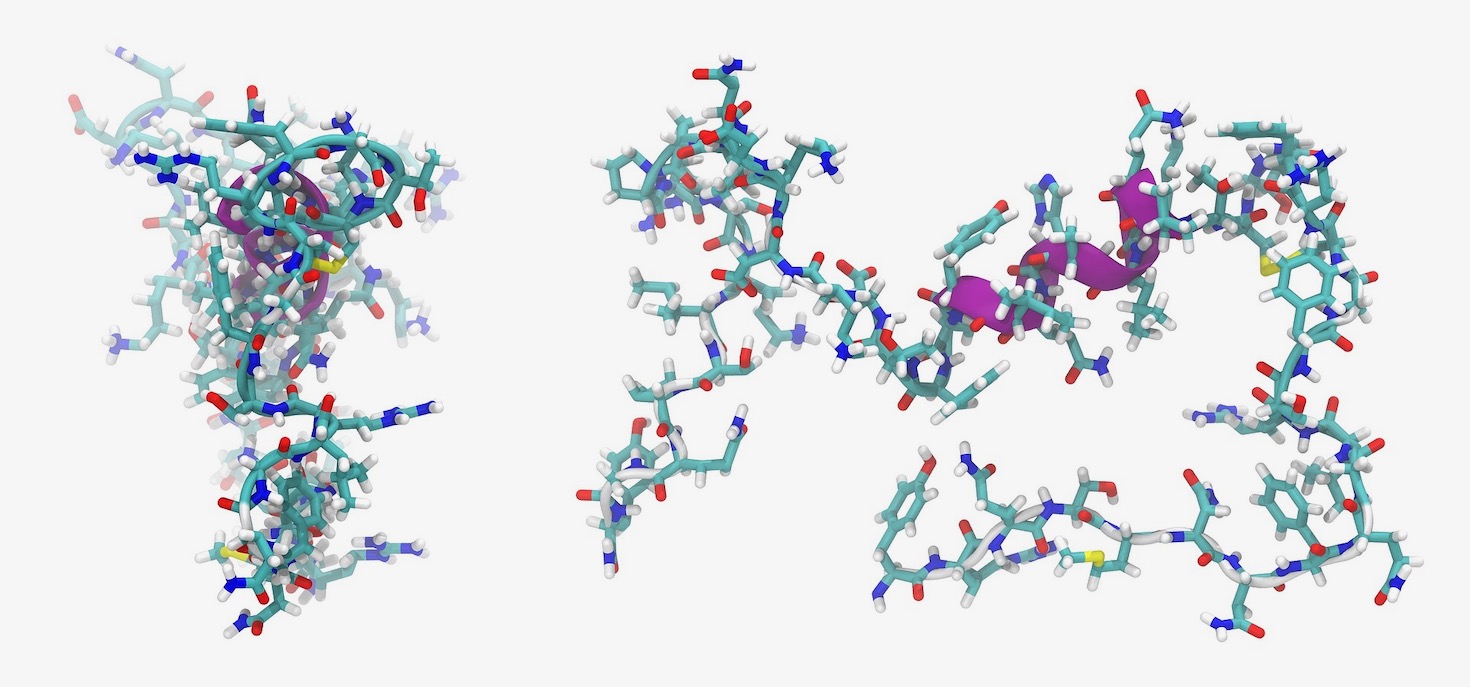
How do Peptides Work?
Throughout your body, you naturally produce peptides for very specific functions. Once created, they act as messengers, giving specific instructions to other cells or organs, often telling them to increase the production of something the body needs.
Traveling throughout the bloodstream, they attach to specific receptors to relay information from one tissue or organ to another, Once attached, they “upload” their message, and then the cell or organ responds.
Signs You May Be Low on Peptides for Men
As you age, your body‘s supply of certain peptides diminishes. How do you know whether you’re coming up short?
Ask yourself if you’re suffering from any of the following symptoms:
- Decreased energy
- Reduced libido and/or sexual dysfunction
- A significant drop in muscle or lean body mass
- Difficulty focusing at work
- Poor sleep
- Memory problems
- Increased abdominal fat
- Diminished sense of vitality
- Anxiety or depression
Though peptide therapy is considered an anti-aging therapy, men of all ages may benefit depending on their specific health goals. The ability to personalize your peptide treatment to focus on certain areas of health and fitness is one of the reasons why peptides have become so popular.
8 Reasons Why People Are Talking About Peptides for Men
Because of the wide variety of available peptides, it’s important to talk to a doctor with experience in peptide therapy before starting to use them. Together, you can determine which ones—and which combination—might be most effective for any issue you want to address.
 1. Peptides may help you build lean muscle.
1. Peptides may help you build lean muscle.
Athletes have long used human growth hormone (HGH) to help build muscle and improve athletic performance. Due to safety concerns, however, it was banned by the International Olympic Committee in 1989 and has been looked down upon in other professional organizations as well.
In a 2017 study, researchers acknowledged that HGH “increases lean body mass, reduces fat mass, increases exercise tolerance and maximum oxygen uptake, enhances muscle strength, and improves linear growth.” They added that long-term studies of the hormone revealed conflicting results regarding its safety.
Peptides have now become a popular alternative to HGH because they can offer similar benefits without the concerning side effects. In a recent 2020 study, researchers noted that these peptides are potent growth hormones and IGF-1 stimulators that can “significantly improve body composition” while improving fat gain and muscular atrophy.
2. Peptides might help you lose weight.
Some peptides effectively help burn fat, particularly visceral fat and fat around the abdomen. Examples include growth hormone-releasing peptides like CJC 1295 and ipamorelin and amlexanox which can improve metabolism and decrease appetite.
In a 2019 review, researchers analyzed studies focused on peptides to treat obesity. They found that many peptides helped decrease body weight while allowing participants to better maintain weight loss.
 3. Peptides can improve sexual dysfunction.
3. Peptides can improve sexual dysfunction.
The solutions we have for erectile dysfunction today all operate in the same way—they help increase blood flow to the penis so that you can maintain an erection. They are effective, but they can produce side effects, some that may be dangerous for men with cardiovascular disease.
Peptides that are involved in sexual function operate differently. They are part of the nervous system’s response to sexual arousal. Melanocortins, for example, are peptide hormones that are produced in the brain and are known to be involved in the male sexual response.
In an early study using a synthetic form of one type of melanocortin, results showed that it worked far better than a placebo in helping men to attain and sustain an erection. The researchers called it a “potent initiator of erections in men…”
A later study also found that administration of a similar peptide hormone (PT-141) resulted in a rapid increase in erectile activity—so much so that the scientists concluded that “PT-141 holds promise as a new treatment for sexual dysfunction.”
There is also evidence that peptides can help increase testosterone levels, which in turn, may improve sexual function. In a 2014 article published in Molecular Therapy, author Michelangelo Campanella noted that a particular peptide showed the ability to increase testosterone production. Peptides that naturally boost growth hormone levels may also help to improve testosterone production.
4. Peptides may speed up your recovery time.
After a hard workout, you want to recover quickly so you’re ready to go again the next day. Muscle, tendon, and ligament damage can slow you down, preventing you from reaching your athletic goals.
Here again, peptides may help. In a 2019 study, scientists examined whether consuming collagen peptides before and after strenuous exercise would help improve muscle and bone recovery. They tested 24 active males who consumed either 20 grams a day of the peptides or a placebo for 7 days before and 2 days after performing 150 drop jumps.
Results showed that 48 hours after exercise, the peptide group experienced significantly less muscle soreness than the placebo group. They also recovered more quickly and were able to perform higher jumps at their next workout. Peptides seem to enhance the normal process of tissue repair, helping to speed up full recovery.
 5. Peptides may help boost the immune system.
5. Peptides may help boost the immune system.
We’re all interested in avoiding infections—even more so today given the recent public health issues.
Several studies have indicated that peptides can help encourage immune function—or calm it down if necessary.
In a 2020 study, researchers reported that certain antimicrobial defense peptides (AMPs) could not only fight off microbes, but boost the immune system when needed, or reduce inflammation in cases where the immune system was overreacting.
An earlier study showed that AMPs were “promising candidates” for use against antibiotic-resistant bacteria. These peptides could help boost the action of some antibiotics against these difficult bacteria, helping the medications to work more effectively.
Other studies have found that AMPs can protect against pathogenic bacteria, fungi, and viruses, potentially increasing your resistance to infections. Peptides that encourage the production of HGH may help too since HGH plays an important role in enhancing the immune response.
6. Peptides have anti-aging properties.
We all want to stay as youthful as possible. If you’re beginning to “feel” your age, ask your doctor about peptides.
Preliminary research suggests that peptides may act in several ways to help slow the process of aging.
In a recent 2020 study, scientists noted that they could reduce oxidative stress, improve glucose metabolism, lower LDL “bad” cholesterol, improve insulin resistance, and perhaps even extend lifespan.
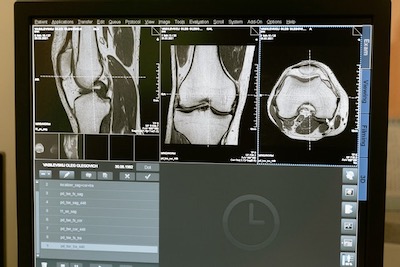 7. Peptides show promise in maintaining bone health.
7. Peptides show promise in maintaining bone health.
Specific collagen peptides may help to improve bone mineral density (BMD). Though women are more likely to experience bone loss with age than men, men can still be at risk, particularly if they:
- have low testosterone levels,
- smoke,
- have digestive disorders,
- or abuse alcohol.
In a 2018 study, scientists found that the intake of specific collagen peptides helped significantly increase BMD, which in turn, can help reduce the risk of fractures. The next year, scientists reported again that a collagen peptide solution targeted and modulated the function of bone-remodeling cells, helping to support bone health.
8. Peptides may help you look younger.
Applying a skincare product that includes peptides may help you fade the appearance of lines and wrinkles while delaying sagging.
In a 2020 study, researchers found that the topical application of peptides increased collagen content in the skin, improving wrinkles.
An earlier study also showed that peptides helped reduce the appearance of wrinkles with fewer side effects than Botox.
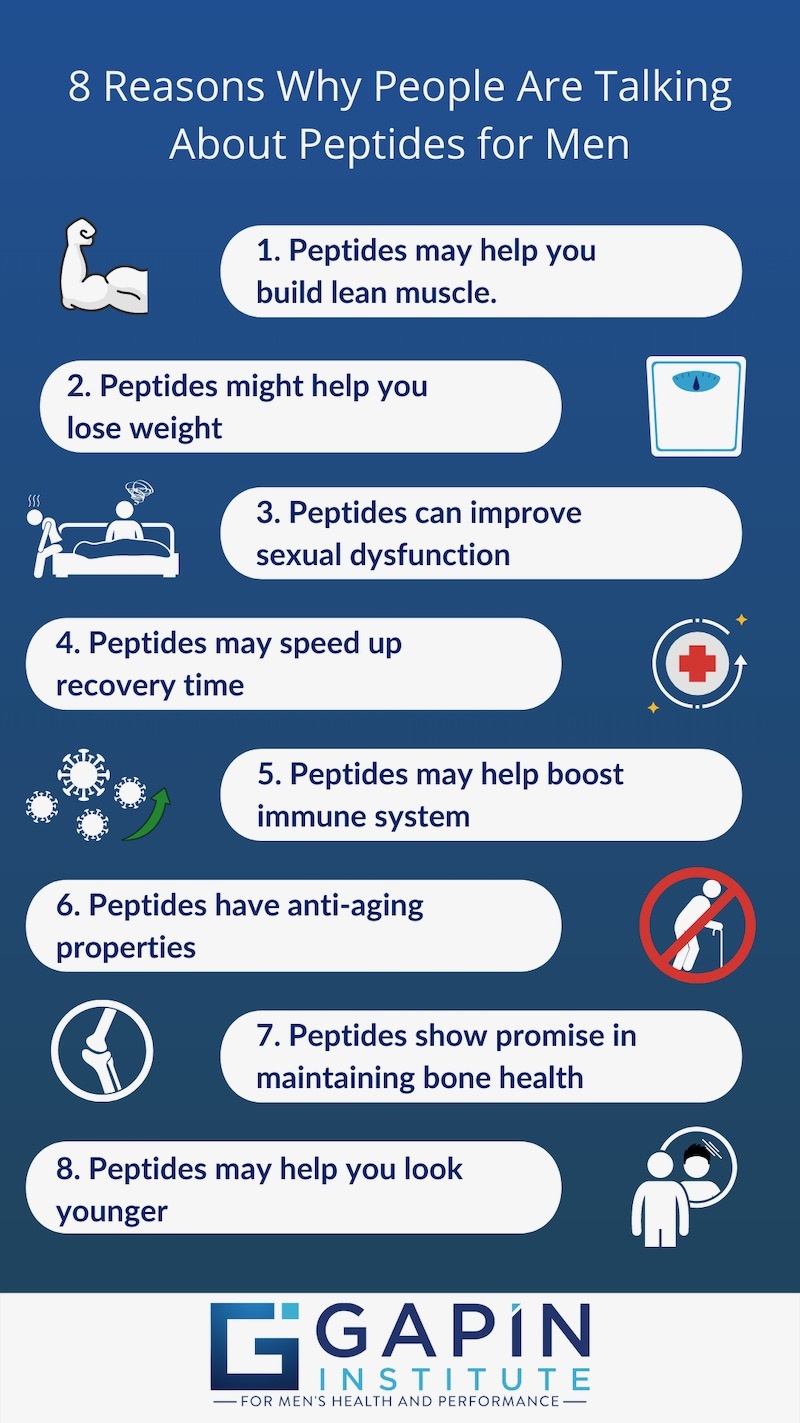
Are Peptides for Men Safe?
Because peptides are naturally occurring in the body and in food, they are unlikely to cause serious side effects in healthy people as long as they are taking in reasonable amounts.
In a recent review of the scientific literature, researchers stated that the peptides available today “show negligible toxicity,” while another review reported that peptides have a “good safety profile” with a promising future in human health.
It is important to note, that the U.S. Food and Drug Administration (FDA) does not regulate supplements in the same way they do medications. Manufacturers are not required to study the supplements and then submit clinical data. As long as they use approved ingredients, they can market their products as they please.
For this reason, it’s important to work with a doctor who has experience with peptide therapy and can prescribe peptides from a reputable compounding pharmacy with top-notch quality assurance.
What Are the Most Commonly Used Peptides for Men?
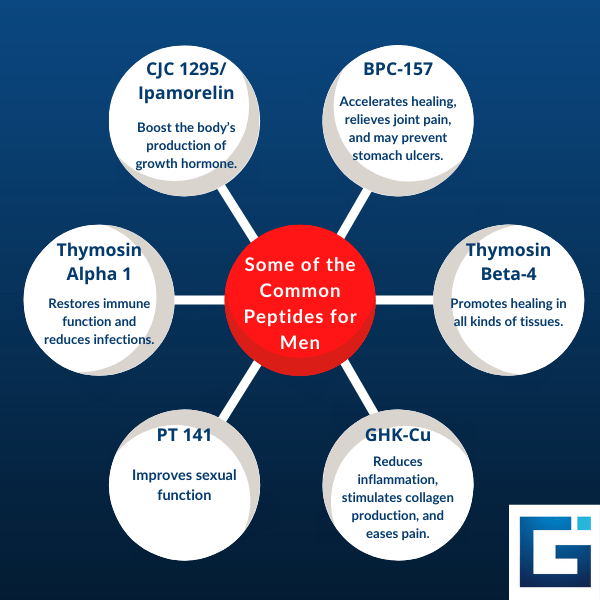
Below are some of the most common peptides used today in men’s health. It’s important to note that peptide therapy is individualized to each man. Work with your doctor to discuss which ones may work best for you.
Growth Hormone-Releasing Peptides
As mentioned earlier, production of HGH tends to decline with age. HGH plays several important roles in the body, including helping build muscle and bone, burn fat, boost workout recovery, improve insulin sensitivity, and boost metabolism.
Boosting production is a key part of an overall anti-aging strategy.
Growth Hormone-Releasing Peptides tell the pituitary gland in the brain to produce more human growth hormone (HGH).
An examples of peptides that promote the release of HGH include ipamorelin, sermorelin, and CJC-1295.
CJC-1295 is a peptide that increases growth hormone releasing hormone secretion from the hypothalamus, which stimulates pituitary secretion of growth hormone. It’s often combined with ipamorelin, a peptide that blocks somatostatin, an inhibitor of growth hormone, thus removing the ‘brakes’ of growth hormone secretion.
Together, these two peptides can increase muscle mass and strength and improve recovery time—helping you get more out of your workouts.
BPC-157 (Body Protective Compound 157)
Fifteen amino acids come together to form this peptide, which was discovered in human gastric (digestive) juice. BPC-157 reduces gastrointestinal, systemic, and joint inflammation. It has been found to accelerate healing, including tendon and bone healing. It may also help prevent stomach ulcers, relieve joint pain, and decrease damage in muscle strains and tears.
Thymosin Alpha 1
Scientists have been researching thymosin alpha for over a decade. It stimulates improved immune function by optimizing T cell immunity.
Thymosin Beta-4 (TB-4)
This peptide is naturally produced in larger amounts where tissues have been damaged. Its primary function is to promote healing in all kinds of tissues. These include those in the eyes, muscles, tendons, heart, and skin.
PT 141
Also known as Bremelanotide, this is a synthetic peptide that mimics the natural peptide alpha-MSH (alpha-melanocyte-stimulating hormone), which is produced in the brain. It works to help increase sexual desire and improve erectile dysfunction. Because it operates through the nervous system rather than the vascular system (like Viagra and Cialis do), it may be safer for some men with diagnosed heart conditions.
GHK-Cu
GHK-Cu is a naturally-occurring powerful copper peptide. It helps promote healing by reducing inflammation, stimulating collagen production, and reducing pain (including nerve pain). It may also help overcome hair loss.
How Do You Take Peptides?
Depending on your recommended type and dosage, you may take peptides through various routes. These include subcutaneous injections, oral medications, and topical creams.
Should You Use Peptides for Men?
Peptide therapy can provide amazing benefits. Talk with a doctor experienced with prescribing peptides to determine which ones are right for you. They will consider your health status, performance goals, and other factors before the best type of peptide therapy for you.
If you’re curious about how you may benefit from peptide therapy, schedule a free consultation with a men’s health advisor today.
collagen peptides for men collagen peptides good for men collagen peptides men’s health collagen powder for men do peptides affect testosterone does collagen increase testosterone is collagen good for males peptides for bodybuilding peptides for male enhancement peptides for men peptides for men’s health vital proteins collagen for men
Men’s Health: How BPC 157 Could Supercharge Your Body’s Healing and Health

I’m getting really excited about peptides.
It’s not just me: the general medical community is coming to understand—if slowly— what a small group of dedicated researchers have known for decades: peptides may be the key to aging gracefully.
They’re promising for a few reasons.
The first—and most important—is that they actually seem to work. Unlike many fads in the men’s health and precision medicine space, peptides are walking the talk.
The second is that they work by using your body’s own biology. Rather than introducing a harsh chemical to your system and hoping for the best, peptides are already used by your body to regulate itself. So they fit well in our body’s complex machinery.
And the third reason is that there are so many. There are thousands of peptides known to science, and only a handful have been truly and properly studied. Different peptides have very different effects. There’s a ton of promise.
This article is about one peptide in particular that is widely used in athletics and by biohackers. It’s called “gastric pentadecapeptide body protection compound” but is more commonly known as BPC-157—“body protection compound”.
While we’re still learning more about it, the evidence indicates it could be used to greatly boost recovery from injuries, help heal stomach ulcers, and have a number of other protective effects.
What is BPC-157?
BPC is a peptide, which means it’s a short chain of amino acids—the substances that make up proteins. It’s a pentadecapeptide, which means that it’s made up of 15 amino acids held together by peptide bonds.
BPC is considered a “synthetic” peptide because this particular substance is created synthetically in a lab. But it was derived from a protein that is found in the human body. BPC, chemically, looks like a smaller part of that natural protein.
Peptides are often used by our bodies as chemical messengers. They help regulate a number of different functions and get the body performing at its best.
Because they’re naturally used by our body, supplementing peptides has become an effective therapeutic technique. The peptide therapies that exist can be used for a number of beneficial uses including to boost the immune system, to help with weight loss and burning fat, and even to reduce inflammation.
What does BPC-157 do?
Well, it appears that it has a number of potential benefits, especially when it comes to helping your body heal and repair after an injury.
BPC-157 speeds up tissue repair

Some of the promising studies on BPC-157 have found that they may be effective in speeding up the repair of ligaments, tendons, muscle tissue, and even the skin.
For example, in one study, BPC-157 consistently healed damaged ligaments in rats much quicker than if it was not present. The healing was effective, too: it preserved the function and biomechanics of the joint. In another study, BPC-157 was found to kickstart the production of collagen. Collagen helps skin look elastic, and is also essential to joint health, as well as hair and nails. In a further study, BPC sped up bone repair.
Those results seem to hold across studies. In a 2019 review, researchers found that BPC-157 was consistently able to repair soft tissue injuries across all the research that they reviewed. They noted,
“All of the studies to date that have tested BPC 157 as a treatment therapy have demonstrated extremely positive healing effects for various injury types in a number of soft tissues.”
I should note an important caveat to this research: most of the studies that have been done on this peptide have been done on animals—usually rats. That’s normal: animal studies are used to get a sense of what a compound does and to get a sense of its safety. That’s partly so that humans are not put at risk, but it’s also because research on animals is much less expensive to do. Then researchers move to humans so they are confident that it could work and when they are willing to invest in much more expensive research.
Since rats have a lot in common with humans, including how our muscles and lean tissues work, the research results for BPC-157 are quite promising.
But of course, since most of the research hasn’t been conducted on humans, we need to be cautious about making too much of these findings.
BPC-157 helps heal your gut
One of the focuses of BPC-157 research is on its role in contributing to gut health. This is the focus mostly because BPC-157 was originally derived from a protein that is found in the gut.
Research now suggests that it can have a powerful effect on protecting and healing damaged digestive tissue: it’s been found to inhibit the formation of lesions in the esophagus, stomach, and duodenum. This is especially true of the oral form of BPC-157, which is especially good for the gut.
BPC-157 route of administration
BPC-157 can be taken orally or it can be injected subcutaneously (just beneath the skin). It appears to have the most powerful effect on gut health when taken orally, whereas subcutaneous injections are better for reducing systemic inflammation and aiding with tissue repair. BPC-157 can be injected subcutaneously in the lower abdomen, or for better effect in specific joints or muscles, can be injected near the site of concern (for example, you might inject it near the elbow if you wanted to heal an elbow injury).
BPC-157 reduces harmful side effects of other medications
It can also help protect the gut from other chemicals.
The magic of modern medicine has given us a number of important pharmacological interventions (medications) for a wide range of diseases and medical issues. These are often essential.
But they also may have some harmful side effects.
For example, haloperidol is a commonly used medication for treating the symptoms of some psychological illnesses like mania and schizophrenia. It’s a very useful drug, but it can also be quite rough on the body. One side effect of haloperidol is that it causes stomach lesions. Stomach lesions are also a side effect of some chemotherapy medications that are used to treat cancer.
BPC-157 seems to be able to counteract these in many cases, preventing these lesions. That suggests it could be useful as a complementary therapy when these other medications are prescribed.
BCP-157 enhances blood flow
Doctors and scientists suspect that one of the ways BPC works to repair tissue is by increasing blood flow to injuries. After all, blood brings the body what it needs to repair itself: oxygen, nutrients, antibodies, and so on.
And BPC-157 seems to increase blood flow. There appear to be two ways that it does so.
The first is by upregulating the expression of growth factor early growth response gene-1 (also called EGR-1). This gene is involved in increasing the amount of blood that flows to wounds.
The second way it does this is by actually increasing the number of blood vessels. The fancy medical terms are angiogenesis (the creation of arteries) and vasculogenesis (the creation of veins). BPC-157 seems to activate vascular endothelial growth factor receptors, which are involved in increasing the number of blood vessels and repairing them.
This insight comes from in vitro studies, which means studies done on cells isolated outside of the body (imagine scientists looking under a microscope at a petri dish). So, again, we have to be careful not to make too much of these results, since we’re investigating the effects of BPC-157 outside the body.
Still, these results are exciting because they provide a possible explanation for why we consistently see BPC-157 improving the healing and repair of tissues.
BPC-157 has anti-inflammatory properties
Some studies have found the BPC-157 is an anti-inflammatory. It was found to significantly decrease inflammation in patients with ulcerative colitis, which is a kind of bowel disease.
Researchers were especially optimistic about the use of BPC-157 as a treatment for inflammation because it didn’t show the same kind of side effects that other commonly prescribed anti-inflammatories have.
What’s more, BPC-157 seems to be useful in treating both acute and chronic inflammation.
BPC-157 seems to be neuroprotective
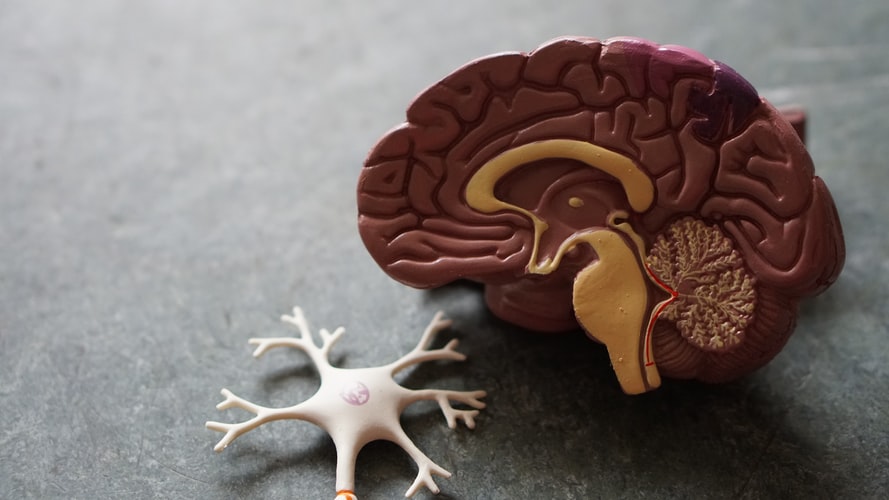
If that’s not enough, BPC could be a salve for various kinds of traumatic brain injuries. Researchers found that it has neuroprotective effects: it protects somatosensory neurons, it appears to promote peripheral nerve regeneration, and it seems to slow or even reverse the course of traumatic brain injuries from progressing.
All those effects have led researchers to conclude that BPC 157 could serve as a new soldier in the battle against disorders of the nervous system.
What about BPC side effects?
It’s important to make it clear that the research on BPC in humans is limited.
BPC has been found to be safe in clinical trials conducted in several countries, with no toxicity reported. Those results are consistent with the results from the animal studies conducted to date: there haven’t been any instances of toxicity reported.
But because of the lack of research on side effects, there is still much that we don’t know. That’s why all peptides should be carefully administered under the guidance of a clinical research trial or a qualified physician. Ideally, you’ll want to ensure that you have a doctor who understands the promise and any risks associated with peptide therapy so that you can get well-informed advice.
Peptides can be part of a systems health approach
Our bodies are complex and massively interrelated.
How you eat, how you sleep, whether you’re stressed, and your sexual health all are influenced by, and in turn influence, each other. You need all those things to be in place to thrive. You can’t just take a peptide and suddenly feel young and energetic again.
But peptides can be a part of a systems-based approach to health, just like hormone therapy, a weight loss program, and other forms of lifestyle medicine. BPC-157, in particular, is promising as a way to help repair injured tissues, reduce inflammation, and generally help your body heal itself. It may be a form of peptide therapy that’s appropriate for you.
Remember, always consult a qualified physician before starting a peptide regimen. Most physicians aren’t well-versed in the promising effects of peptide therapies, but some are. Look for a doctor you can trust that understands the complexity of the body and can help you optimize your health and your life.
BPS-157 might just be a crucial part of that.

Schedule a consultation to learn how peptides can help YOU.
Ready to take the next steps?
Download the Blueprint
Schedule a Call
**************************
 In Male 2.0™, Dr. Tracy Gapin has turned everything we once thought we knew about men’s health and performance upside down. The old model of how to be “a man” is broken. A man who works himself to death. Unfortunately, a man who tries to NOT get sick but isn’t really healthy either. And a man who takes a pill for every ill but is never really cured. That was Male 1.0. Now, imagine being THE MAN ─ owning your performance in the bedroom, the weight room, and the boardroom. Living a fully optimized life. Becoming limitless. This is Male 2.0!
In Male 2.0™, Dr. Tracy Gapin has turned everything we once thought we knew about men’s health and performance upside down. The old model of how to be “a man” is broken. A man who works himself to death. Unfortunately, a man who tries to NOT get sick but isn’t really healthy either. And a man who takes a pill for every ill but is never really cured. That was Male 1.0. Now, imagine being THE MAN ─ owning your performance in the bedroom, the weight room, and the boardroom. Living a fully optimized life. Becoming limitless. This is Male 2.0!
Tracy Gapin, MD, FACS is a board-certified Urologist, world renowned Men’s Health & Performance Expert, Author, and Professional Speaker. Using state-of-the-art biometric monitoring, nutrition and lifestyle intervention, Dr. Gapin coaches Fortune 500 executives and evolutionary leaders of business, sports medicine, and high performance. He specializes in cutting-edge precision medicine with an emphasis on epigenetics, providing men with a personalized path to optimizing health & performance. www.GapinInstitute.com
Want more tips to optimize your health? Listen to the latest podcasts. Click HERE
References
Cerovecki, T., Bojanic, I., Brcic, L., Radic, B., Vukoja, I., Seiwerth, S., & Sikiric, P. (2010). Pentadecapeptide BPC 157 (PL 14736) improves ligament healing in the rat. Journal of orthopaedic research, 28(9), 1155-1161.
Gwyer, D., Wragg, N. M., & Wilson, S. L. (2019). Gastric pentadecapeptide body protection compound BPC 157 and its role in accelerating musculoskeletal soft tissue healing. Cell and tissue research, 377(2), 153-159.
Sikiric, P. S., Seiwerth, S., Rucman, R., Turkovic, B., Rokotov, D. S., Brcic, L., … & Sebecic, B. (2012). Effect of Pentadecapeptide BPC 157 on Gastrointestinal Tract. In Filaretova L. P., & Takeuchi, K. (Eds.), Cell/Tissue Injury and Cytoprotection/Organoprotection in the Gastrointestinal Tract (Vol. 30, pp. 191-201). Karger Publishers.
CJC-1295 and Ipamorelin: Your Key to Turn Back the Clock on Aging?

We’re having a revolution in medicine and biology. We’re at the point where the medical community is starting to redefine aging.
We used to think about growing older almost like an inevitable disease. Our approach to aging healthily was to study the complications and declines in health that come with increasing years around the sun, and then try to find treatments for those, or minimize the risk factors. That strategy is reactive and passive.
But functional and integrative physicians have sought more—and we’re finding it.
Pioneering scientists and medical researchers are leading a shift in the understanding of aging from one focused on treating disease to one that focuses on preserving health and enhancing the body’s own capacity to heal.
We are learning to use principles of preventive medicine to stay healthy and well.
The body has a drive towards balance, especially at the cellular level. Harnessing what we know about cell functions allows us to prevent their breakdown, regardless of the number of candles on our birthday cake.
That effectively means this: we can keep ourselves young.
Peptide therapy is one way that we’re starting to do that. Some forward-looking physicians and medical practitioners are now using peptides as a way to reverse the cellular clock in your body and enable it to function like it used to when you were younger.
One of the exciting peptides in this field is CJC-1295.
What is CJC-1295?
CJC-1295 is the creative (or not!) name that scientists have assigned to a particular synthetic peptide.
“Synthetic peptide” just means that it’s a chain of amino acids (the building blocks of proteins) that was created by scientists. It was made to chemically resemble a hormone that your body already makes called growth hormone-releasing hormone (GHRH). GHRH is part of your body’s system to regulate the production and release of growth hormone (GH).
Why growth hormone matters
Growth hormone is essential. It’s involved in a ton of important bodily processes, especially those that support the creation and repair of tissue. For example, it’s involved in muscle gains after a workout, rejuvenating skin cells, repairing injured tissues, improving immune system functioning, and much more.
Basically, when new cells are being created, growth hormone is part of that process.
Most people produce lots of growth hormone when they’re young—it’s an important part of children’s development into adulthood. And production of growth hormone continues to be high going into young adulthood.
Growth hormone declines with age
But—surprise—it starts to decline with age. Growth hormone levels in the blood are much lower in older adults than they are in young adults. That’s part of the reason that your body takes longer to recover as you get older: it doesn’t have the hormonal support it needs to repair and heal itself.
Increasing growth hormone can be a powerful part of an anti-aging therapy strategy.
But how can you increase GH levels?
While it’s possible to supplement growth hormone directly, it’s not ideal. Directly supplementing GH can lead to some nasty side effects.
Instead, it’s just as effective—and easier on the body—to supplement the other chemicals that regulate growth hormone.
Growth hormone secretagogues
That’s where “growth hormone secretagogues” come in. Growth hormone secretagogues make up a group of peptides that stimulate the production and secretion of growth hormone.
That means that they stimulate the body to produce and secrete its own growth hormone. That turns out to be a lot easier on your body.
What does CJC-1295 do?
CJC-1295 is one of those growth hormone secretagogues.
What it does is mimic your body’s naturally made growth hormone-releasing hormone. By doing that, CJC-1295 is able to bind to the same receptors that GHRH does. And so it has the same effect: it tells your body to produce more growth hormone.
What is Ipamorelin?
Ipamorelin is another growth hormone secretagogue. The end result of Ipamorelin is the same as CJC-1295: it increases the GH that’s available in your blood and that makes it to cells.
But Ipamorelin works slightly differently from CJC-1295.
The chemistry is slightly complicated, but very briefly, Ipamorelin falls into a different category called growth hormone-releasing peptides (GHRPs). GHRPs mimic a substance your body makes called Ghrelin, which is also involved in the regulation of growth hormone.
Ghrelin helps turn down something called somatostatin—an inhibitor of GH. So Ghrelin basically creates the right conditions for growth hormone to be secreted.
What does Ipamorelin do?
Ipamorelin mimics Ghrelin. Because it looks the same to your body as Ghrelin, it has the same effect of turning down somatostatin and encouraging your body to secrete more GH.
CJC-1295 and Ipamorelin have complementary effects
GHRHs, like CJC-1295, and GHRPs, like Ipamorelin, work together.
CJC-1295 tells your body to produce more GH. Then, Ipamorelin creates an environment where GH can easily be secreted.
Together, CJC-1295 and Ipamorelin pack a one-two punch for upping your GH levels and supporting your body to create new tissue.
What are the potential benefits of Ipamorelin and CJC-1295?
Great, so CJC-1295 and Ipamorelin can work together to increase the amount of growth hormone in your blood. We know that they both really do increase GH, and this helps your cells get what they need to function properly, repair themselves, and create new, healthy cells.
But what does that actually mean for you?
What are the potential health benefits that you would actually notice?
First, I should make it clear that the research is still being done. We don’t yet thoroughly understand all of the effects of either Ipamorelin or CJC-1295. The results look promising, but we still need to do more to gain a comprehensive understanding.
Still, based on the existing research, there are several potential benefits to your health that you’ll be able to notice.
Faster muscle growth

Higher levels of growth hormone in the blood make it easier for your body to synthesize proteins and muscle fibers. That means CJC-1295 and Ipamorelin support muscle building: they make it easier for you to gain muscle mass.
Indeed, several studies have found that higher GH levels in the blood lead to significant muscle gains and greater strength. That’s part of the reason that CJC-1295 and Ipamorelin are so popular in bodybuilding communities.
Fat burning
Another benefit of the higher GH levels that come from growth hormone secretagogues is that they tend to spur on higher metabolism. The bigger the metabolism “fire,” the more fat gets burned.
Of course, neither CJC-1295 nor any other peptide is a magic weight-loss solution. It takes some effort to lose weight: you have to exercise, eat a reasonably healthy diet, and more. But helping your cells get what they need to actually burn the fat can certainly help.
Younger-looking skin
You already know that age takes a toll on the skin. What’s happening is that the collagen in the skin is breaking down, and is not being replaced. That makes the skin less elastic and thinner. And that leads to wrinkles.
The formation and maintenance of collagen rely on growth hormone. And it turns out that increasing the amount of growth hormone that’s available in the blood makes it easier for the body to replace collagen. The result is younger-looking skin.
Improved sleep

Sleep and growth hormone are linked.
Much of your body’s growth hormone is secreted while you sleep. That makes sense since sleep is when your body does the most repair of tissue. If you think your muscles grow in the gym, you’re wrong: the gym may initiate the growth, but that growth happens when you sleep.
But it turns out that it goes the other way, too: CJC-1295 appears to improve sleep as well. And better sleep means better health and general bodily functioning.
Are there side effects of CJC-1295?
Again, it’s important to stress that we’re still in the early days of understanding exactly what effects peptides can have on the body. In general, they appear to be safe—partly because rather than adding new substances or chemicals, our bodies already use peptides to communicate. So they’re typically well-tolerated.
The studies that do exist on CJC-1295 suggest that it’s generally safe, well-tolerated, and has minimal side effects.
Still, some side effects have been noted. These include:
- dizziness
- headache
- nausea
- flu-like symptoms
- hives
- increased heart rate
- flushing
- hyperactivity
- redness and tenderness at injection site
- difficulty swallowing
Possible adverse effects are the reason that all peptide therapies should be conducted under the supervision of a qualified physician. A doctor that specializes in lifestyle medicine can help you ensure that any peptide doses are safe, appropriate for your particular biochemistry, and help you minimize unintended side effects.

Peptide Therapy can be powerful
As far as we’ve come in modern medicine, we’ve still got a long way to go.
The medical community is really just now beginning to see the vast potential of peptide therapies in preserving health and regular functioning as we get older.
But the promise is there.
CJC-1295 is just one of a number of peptides that—under the proper medical guidance—could be a useful addition to your personalized medicine and health regime.
Conclusion
As more studies reveal their health benefits beyond weight loss, the known benefits of peptides are worth acknowledging. Peptides and peptide therapy are cutting-edge tools. You can use them to optimize your health, slow the aging process, and reduce inflammation. Learning new ways to target and use peptides, polypeptides and proteins helps you move away from disease and towards better health.
If you’re interested in radically upgrading your health, you’ll want to keep a close eye on the power of peptides and consider adding these therapies to your regimen. After all, when it comes to living a better life for a longer span of time, we’re looking at brand new ways to do just that – and the sky’s the limit.
The best place to start if you want a hormonal optimization or peptide program is by seeing a physician first. Have a doctor draw your blood and evaluate whether you are a candidate for therapy.
Gapin Institute is currently accepting new clients and offers a comprehensive evaluation, blood test and state-of-the-art screening. If you are tired of being tired… or you have tried everything to lose that unwanted weight but nothing seems to be working, our Peptide therapy might be the piece to the puzzle that you are missing. Call us today to schedule your consultation. (941) 444-1441.
You’ll get access to a genetic-based report and analysis, along with a private consultation that will put you on track to your ultimate health.
With the Male 2.0 Method, I test your DNA, interpret the results, and create a customized strategy just for you. This plan is specific to YOUR individual genes and lifestyle. It will improve every area of your life, from your health and professional productivity to your overall longevity and total wellbeing. Male 2.0 gives you the actionable tools you need right now. It reveals what you need to customize and design your future limitless self.
Schedule a consultation to learn how peptides can help YOU.
Ready to take the next steps?
Schedule a Call
 In Male 2.0™, Dr. Tracy Gapin has turned everything we once thought we knew about men’s health and performance upside down. The old model of how to be “a man” is broken. A man who works himself to death. Unfortunately, a man who tries to NOT get sick but isn’t really healthy either. And a man who takes a pill for every ill but is never really cured. That was Male 1.0. Now, imagine being THE MAN ─ owning your performance in the bedroom, the weight room, and the boardroom. Living a fully optimized life. Becoming limitless. This is Male 2.0!
In Male 2.0™, Dr. Tracy Gapin has turned everything we once thought we knew about men’s health and performance upside down. The old model of how to be “a man” is broken. A man who works himself to death. Unfortunately, a man who tries to NOT get sick but isn’t really healthy either. And a man who takes a pill for every ill but is never really cured. That was Male 1.0. Now, imagine being THE MAN ─ owning your performance in the bedroom, the weight room, and the boardroom. Living a fully optimized life. Becoming limitless. This is Male 2.0!
Tracy Gapin, MD, FACS is a board-certified Urologist, world renowned Men’s Health & Performance Expert, Author, and Professional Speaker. Using state-of-the-art biometric monitoring, nutrition and lifestyle intervention, Dr. Gapin coaches Fortune 500 executives and evolutionary leaders of business, sports medicine, and high performance. He specializes in cutting-edge precision medicine with an emphasis on epigenetics, providing men with a personalized path to optimizing health & performance. www.GapinInstitute.com
Want more tips to optimize your health? Listen to the latest podcasts. Click HERE
References
Bartke, A. (2019). Growth hormone and aging: updated review. The World Journal of Men’s Health, 37(1), 19-30.
Florini, J. R. (1987). Hormonal control of muscle growth. Muscle & Nerve: Official Journal of the American Association of Electrodiagnostic Medicine, 10(7), 577-598.
Raun, K, Hansen, B., Johansen, N., Thogersen, H, Madsen, K, Ankersen, M, & Andersen, P. (1998). Ipamorelin, the first selective growth hormone secretagogue. European Journal of Endocrinology. 139 (5): 552–561.
Seeds, W. (2020). Peptide protocols, volume 1. Seeds scientific performance research.
Teichman, S. L., Neale, A., Lawrence, B., Gagnon, C., Castaigne, J. P., & Frohman, L. A. (2006). Prolonged stimulation of growth hormone (GH) and insulin-like growth factor I secretion by CJC-1295, a long-acting analog of GH-releasing hormone, in healthy adults. The Journal of Clinical Endocrinology & Metabolism, 91(3), 799-805.
Inflammation Makes You Gain Weight. Peptide Therapy Can Help You Lose Weight.

Weight loss is one of the most common health concerns among my clients.
Men struggle with weight loss even though they do all the right things: they go to the gym regularly, they eat a clean diet, they take what they think are the right supplements… but something just isn’t right.
Losing weight seems like it should be easy if you’ve straightened out your diet and exercise… So, why is it so hard to lose that stubborn fat?
First off, the body is complex.There are a ton of factors beyond diet and exercise that matter for losing weight. Of course, sleep is really important, your hormones and testosterone matter, and stress plays a huge factor. Your microbiome and gut health almost certainly play a role, too.
And, of course, your genes matter. Not just your actual genetic makeup, but also epigenetics—which genes are turned on or off at a given time.
In order to understand weight loss, and men’s health in general, we have to think about the body as a sophisticated system. If you want to lose weight, get more energy, and feel younger, there’s a constellation of factors that matter.
And here’s a big one that people often miss: inflammation.
In this article, I want to explain the connection between your body’s inflammatory response and the difficulty you may have shedding those extra pounds. And then I’ll tell you how you can address your inflammation with targeted peptides to help you finally lose weight.
What is inflammation?
Inflammation is your body’s general immune response. There are two main types that we’re concerned with:
- Acute inflammation is a localized response. It’s what you get when you sprain your ankle and it swells up, gets red, and gets warm. Or when you get an infected cut. Acute inflammation is your body sending in the “good guys” to repair tissue or get rid of toxins.
- Chronic inflammation is a longer term, generalized response. It happens when your body’s own white blood cells stick around longer than they need to and start attacking your own body. It’s a deep-rooted, systemic problem.
Chronic inflammation can have serious health consequences, including increased risk of cardiovascular diseases, cancer, Alzheimer’s, prostate disorders, and more.
But in addition to all those severe health issues, inflammation can also just affect how we feel day to day. It could be what’s sapping your energy and making you feel lethargic.
And, most central to this article, chronic inflammation can make it hard for you to lose weight.
What are the signs and symptoms of chronic inflammation?
How do you know if you have chronic inflammation? It can be difficult to know, but some of the symptoms include:
- Being overweight or obese
- Heartburn, nausea, gas, and other gut problems
- Fatigue and chronic feelings of being tired
- Difficulty sleeping
- Prostate problems
- Stress
- Mental fog or emotional instability
- High cholesterol or blood pressure
- Pains or weakness in the muscles that don’t have a clear cause
Chronic inflammation often simply looks like a general feeling of being unwell without a clear cause.
What causes inflammation?

Chronic inflammation is caused by the regular suspects that are related to poor health: a poor diet that’s high in sugars, saturated fats, and trans fats; obesity; stress; and smoking. It can also be caused by periodontal disease, an imbalance of hormones, and inadequate sleep.
How does inflammation contribute to weight gain?
Inflammation and weight gain go together.
First, the research suggests that fatty tissue can trigger inflammation. One study found that adipose tissue actually stimulates your body to release inflammatory mediators like interleukin 6 and tumor necrosis factor α. Other research has suggested that overeating can lead to inflammation. So being overweight can contribute to inflammation.
But it works the other way, too: inflammation can cause you to gain weight—and keep it. One way inflammation does that is by changing how we absorb and use the food we eat. Inflammation can actually affect our gut health: it can influence the bacteria that make up our microbiome and even affect how nutrients and energy are extracted from the food we eat.
For another thing, inflammation may cause us to feel more hungry and to choose to eat foods that are worse for us. And to make matters worse, it also may be one cause of insulin resistance, which makes it more difficult to turn blood glucose into energy.
So being overweight can contribute to chronic inflammation. And inflammation contributes to weight gain. It can turn into a vicious cycle.
The good news is that you can reverse it: losing weight helps reduce inflammation… and reducing inflammation will help you lose weight.
How to reduce inflammation
Adopting a generally healthy lifestyle can help reduce inflammation. That means eating a balanced, nutrient-rich diet; avoiding processed foods, sugary, and fried foods; exercising enough; managing your stress; sleeping enough; and quitting smoking. Those are the basics.
But even after doing all those things, you may find that you need a bit of a boost to lower your inflammation.
That’s where the strategic use of peptide therapies comes in.
Peptides can help disrupt chronic inflammation and help you lose weight

The scientific and medical community is only really just becoming aware of how important peptides can be in helping people age well.
Peptides are small chains of amino acids—like proteins, but shorter.
What do peptides do? Well, there are now thousands of different peptides known to scientists, and there’s a huge variety in the effect that they have. But they often work as chemical signals, helping our body to regulate itself.
For instance, some boost your immune system; others, like BPC-157, help your body repair tissues; others, like tesamorelin, stimulate growth hormone and help you put on muscle; and yet others, like amlexanox, can reduce inflammation and help burn fat.
If peptides are made naturally, how does peptide therapy help?
Our body naturally makes peptides, but production of these essential chemical regulators tend to decrease with age. That’s one of the reasons that our body stops functioning properly as we get older.
Peptide therapies and supplements help restore key peptides back to the level you had in your early 20s. And they can bring back the benefits of a younger body: faster healing, faster metabolism, and improved weight loss, among others.
Amlexanox and weight loss
Amlexanox is one peptide that plays a role in reducing inflammation. That’s why it’s one of the best peptides for weight loss and fat loss.
Amlexanox has a powerful anti-inflammatory effect. Traditionally, it’s actually been used to treat stomach ulcers because it reduces healing time and pain. It works in several ways, including by inhibiting the release of histamine and leukotrienes.
But it also has been found to promote weight loss.
Some research has found that Amlexanox inhibits the TBK1 enzyme, which may enhance the body’s ability to burn fat. It also seems to inhibit IKK-ε, which is an inflammatory mediator. By inhibiting it, Amlexanox improves the metabolism of glucose and improves energy.
Finally—and this brings us back to epigenetics—Amlexanox seems to “turn off” the expression of “fat genes”.
While the research on Amlexanox is still in its infancy, the existing literature does suggest that Amlexanox can have some powerful effects: fighting weight loss and reducing inflammation so you feel your best.
Amlexanox plus TTA give fat a one-two punch
When Amlexanox is used to combat weight gain, it’s usually combined with Tetradecylthioacetic Acid, or TTA.
TTA is a fatty acid that’s given as a nutritional supplement. When you hear “fatty acid”, you might think that’s a bad thing. But don’t worry—it doesn’t get used by the body for fuel. Instead, it actually helps regulate how the body stores fat.
TTA helps decrease hunger and upregulate metabolism of fat. That means it helps you burn through fat quicker.
Together, Amlexanox and TTA are an effective fat-fighting duo.
The men’s health takeaway: Target inflammation to lose weight

The body works together in one big system. That’s why it’s not enough for many people to use a simple equation like, “calories in, calories out”. If it were, weight-loss diets would work and it would be easier to slim down.
To really lose weight and feel healthy, you need a systems approach.
It turns out that a very significant contributor to gaining weight from fat is inflammation. That means that if you’re trying to lose weight, you want to do what you can to minimize inflammation. Some things you can do yourself, like eating well and getting enough sleep.
But you might also want to power-up your own efforts with a tailor-made plan from an expert in peptide therapies. A personalized medicine plan that includes the strategic use of peptides like Amlexanox may be exactly what you need to get your body working at its best.
Schedule a consultation to learn how peptides can help you lose weight.
Ready to take the next steps?
Download the Blueprint
Schedule a Call
**************************
 In Male 2.0™, Dr. Tracy Gapin has turned everything we once thought we knew about men’s health and performance upside down. The old model of how to be “a man” is broken. A man who works himself to death. Unfortunately, a man who tries to NOT get sick but isn’t really healthy either. And a man who takes a pill for every ill but is never really cured. That was Male 1.0. Now, imagine being THE MAN ─ owning your performance in the bedroom, the weight room, and the boardroom. Living a fully optimized life. Becoming limitless. This is Male 2.0!
In Male 2.0™, Dr. Tracy Gapin has turned everything we once thought we knew about men’s health and performance upside down. The old model of how to be “a man” is broken. A man who works himself to death. Unfortunately, a man who tries to NOT get sick but isn’t really healthy either. And a man who takes a pill for every ill but is never really cured. That was Male 1.0. Now, imagine being THE MAN ─ owning your performance in the bedroom, the weight room, and the boardroom. Living a fully optimized life. Becoming limitless. This is Male 2.0!
Tracy Gapin, MD, FACS is a board-certified Urologist, world renowned Men’s Health & Performance Expert, Author, and Professional Speaker. Using state-of-the-art biometric monitoring, nutrition and lifestyle intervention, Dr. Gapin coaches Fortune 500 executives and evolutionary leaders of business, sports medicine, and high performance. He specializes in cutting-edge precision medicine with an emphasis on epigenetics, providing men with a personalized path to optimizing health & performance. www.GapinInstitute.com
Want more tips to optimize your health? Listen to the latest podcasts. Click HERE
Peptide Series: What are the Best Peptides for Weight Loss and Fat Loss?

There’s a whole new way to add the icing on the cake when it comes to maximizing your fitness and nutrition, and it’s pretty exciting. What are we talking about? Peptides. You might have even heard some buzz around Peptides for Weight loss.
If you’re looking to lose weight, burn fat, or upgrade your health to the next level, you’re probably starting to hear some discussion surrounding peptides, so let’s dive right in.
We’re now developing a whole new understanding of exactly what peptides can do and how they can be used for strength, longevity and whole list of other benefits. In fact, it’s so recent that we are still on the frontier – and it’s worth learning even more.
Let’s take a look at what all the hype is about.
What are peptides?
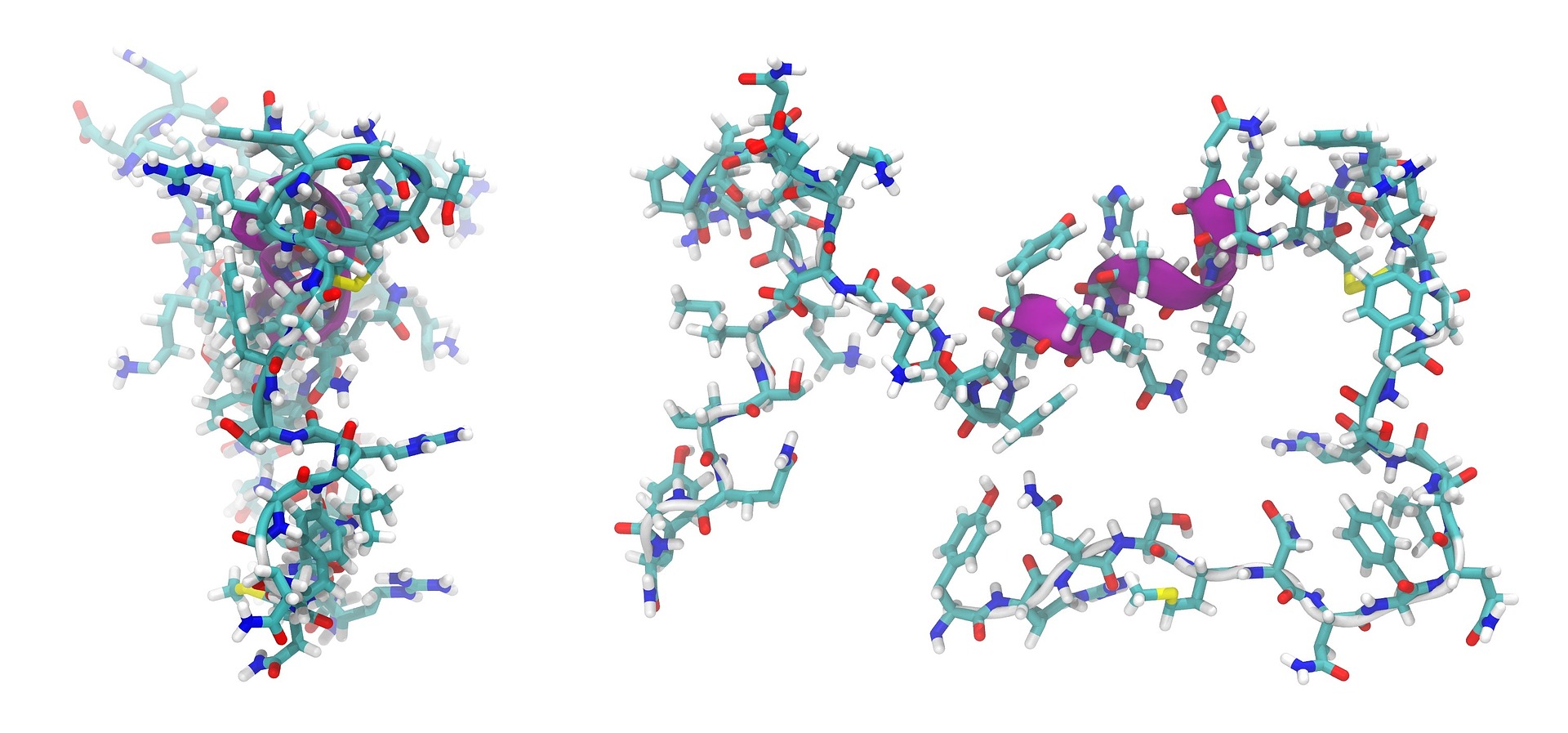
Peptides are naturally occurring biological molecules, found in all living organisms. They play an essential role in all types of biological activity. Simply put, they’re a smaller version of protein. Peptides have different jobs within the cellular tissue, therefore we are able to pinpoint targeted uses for each type of peptide.
There are 20 naturally-occurring amino acids which we can combine into an immense variety of different molecules – a lot like alphabet letters that then combine into various words. How many of these molecules create a particular chain determine whether it’s a peptide, a polypeptide, or a protein; all of which have their identifying properties.
Peptides are molecules composed of 2-50 amino acids. Polypeptides are made of 50-100 amino acids and proteins are made of more than 100 amino acids. Peptides are signaling agents or hormones, and have very precise, specific functions.
The way we apply those functions to supplement or amplify the body’s internal processes is what makes peptide therapy such an exciting new development throughout the course of optimizing health.
Of the 7000 naturally occurring peptides, over 500 of them have therapeutic benefit. Scientist are identifying and developing more every month. Peptides have a wide range of functions, including:
- Weight loss
- Muscle building
- Immune function
- Wound healing
- Cognitive function and memory
- Gut health
- Sexual performance and libido
- Skin rejuvenation
- Hair growth
- Bone and joint health
- Cancer
- Longevity
Today we’ll focus on peptides that have the greatest effect on weight loss.
Growth Hormone-Releasing Hormones
Here is a bit more needed information about Growth Hormone (GH). The pituitary gland secretes GH. The hypothalamus makes GH Releasing Hormone (GHRH) that controls release.
GH has a profound effect on fat breakdown, muscle building, blood sugar regulation, sleep, and immune function. It works directly, but also works through stimulating production of IGF-1.
What makes it even more complicated is that GHRH has an effect on weight loss directly as well. It works peripherally just like GH to improve lipolysis (fat breakdown) and muscle development.
People previously took GH itself to achieve these benefits, but this actually suppresses GHRH release, thereby reducing its effect. So the new generation of peptides overcome that to have a much better effect.
As we age, the hypothalamus produces a hormone called somatostatin, which blocks the pituitary from releasing GH. As somatostatin levels rise, GH levels decrease. Anything we can do to reduce somatostatin levels will help GH levels.
GH-releasing peptides (GHRPs for short); also called ghrelin mimetics, which stimulate weight loss by directly improving your body’s process for breaking down fat (lipolysis). They also increase GH release which helps build muscle and burn fat through 2 mechanisms – direct stimulation of GH release as well as inhibition of somatostatin, which again blocks GH release.
Are peptides similar to steroids?
Peptides have become the frontier of biohacking, with peptide supplements offered via injection, sprays, creams, and pills by medical professionals. Although 100% legal, authorities have banned the use of peptides in competitive athletic sports due to the possibility of unfair advantage.
To be clear, peptides are not steroids or testosterone.
If you are interested in the relationship between testosterone and weight, read my article “How To Lose Weight For Healthy T Levels”.
Compared to steroids and testosterone, touted for their fast benefits (and potential side effects), peptides won’t turn you into the Hulk overnight. Peptides are more of a “slow burn” supplement to enhance your existing healthy lifestyle but not meant to replace time at the gym. While peptides can help you burn fat while you eat, socialize and even sleep, you must combine them with other lifestyle factors over several months to see the best results. In other words, you still have to eat right and get proper exercise!
Which Peptides for Weight Loss are the Best?

In the world of health and fitness, peptides have become a popular supplement for burning fat, building muscle, increasing energy and improving athletic ability. The National Institute of Health is even recognizing peptides as a possible supplement therapy for obesity.
Some peptide supplements (the ones considered performance-enhancing drugs, for example) are often more experimental than others. Here are a few different peptide hormones that help with weight loss and enhance your performance. I’ve arranged them from most-studied to more experimental.
CJC-1295
CJC 1295 is a synthetic GHRH chain constructed with 30 amino acids. Through increased protein synthesis, science has shown this peptide chain to have benefits including increased fat loss, increased cellular repair, cellular regeneration, and increased muscle growth. Interestingly, researchers have also shown it to promote the type of deep, slow-wave sleep that facilitates muscle growth and memory retention.
As with any GHRH-based peptide, careful calculation of dosage and timing cycles – along with cycle breaks – stave off the body’s natural tendency to adapt or “get used to” the therapy, thus reducing its overall effect. One dose of CJC-1295 raises GH levels for 6 days, but in a nice pulsatile fashion, which is what you want.
Tesamorelin (GHRH peptide)
Tesamorelin is another GHRH (Growth Hormone-Releasing Hormone) peptide, that stimulates the pituitary gland to increase growth hormone secretion. Tesamorelin is much more potent than CJC-1295 and can raise IGF-1 levels by as much as 150 points.
This peptide is FDA-approved for lipodystrophy (when the body is unable to produce and maintain healthy fat tissue) and for men who have HIV who get lipodystrophy from some of the medicines that they take and that increases their abdominal fat. Tesamorelin is the most highly researched peptide for fat loss, however it is not normally prescribed as a weight loss medication.
Ipamorelin
Ipamorelin is a growth hormone releasing peptide (GHRP) that works a little bit differently than the GHRH peptides. Ipamorelin works by inhibiting somatostatin, thus taking the ‘breaks’ off GH production. Unlike other GHRPs, Ipamorelin will not increase your sense of hunger. Peptides such as GHRP-2 and GHRP-6 do increase hunger, so they need to be administered at night right before bed otherwise you’d be raiding the fridge and have the opposite effect if you’re trying to lose weight!
A lot of people have moved to Ipamorelin because it increases fat metabolism with less side effects and because it can be combined with other peptides as well. Also known for its anti-aging properties and improvements in energy, this can be used long term, up to a year. In the past, many peptides required in-office or self-administered injections. You can now take Ipamorelin as a sublingual tablet taken under the tongue, before bed to coincide with your body’s natural growth hormone spike.
The combination of CJC-1295 + Ipamorelin (“CJC/IPA”) delivers a more powerful response than either one alone because Ipamorelin is blocking somatostatin.
The key is nighttime dosing to boost overnight GH release, and avoid carbs or fat intake within 2 hours of dosing to ensure max effect.
Amlexanox/TTA
Amlexanox is an anti-inflammatory compound that has the benefit of appetite suppression. Combined with Tetradecylthioacetic Acid (a fatty acid, TTA for short) can help regulate how much fat the body stores by influencing the genes that control metabolism. TTA can help people feel full more quickly while the fatty acid decreases overall hunger and burns fat. In addition to regulating fat metabolism, this fatty acid has antioxidant, anti-inflammatory and immunity-enhancing properties.
BPC-157
First, a warning. If you’re a competitive athlete, this compound is likely classed as a performance-enhancing drug, and you could get disqualified if you take it.
BPC stands for Body Protecting Compound, and it lives up to its name.
It’s a newer peptide with less human research, but the studies using this on rats are pretty amazing. Dubbed a ‘healing peptide’, the research has shown this peptide can heal Achilles tendons, torn knee ligaments and even repair leaky gut in our furry friends. There were no discernible side effects in any of these studies, and anecdotal reports suggest that BPC-157 could help you heal like a Marvel mutant.
Although its benefits are more focused on healing, when it comes to the life of an athlete, fast healing from injuries means shorter recovery times and less time for the weight to creep back on!
How Fast Can I See Results from Peptides?
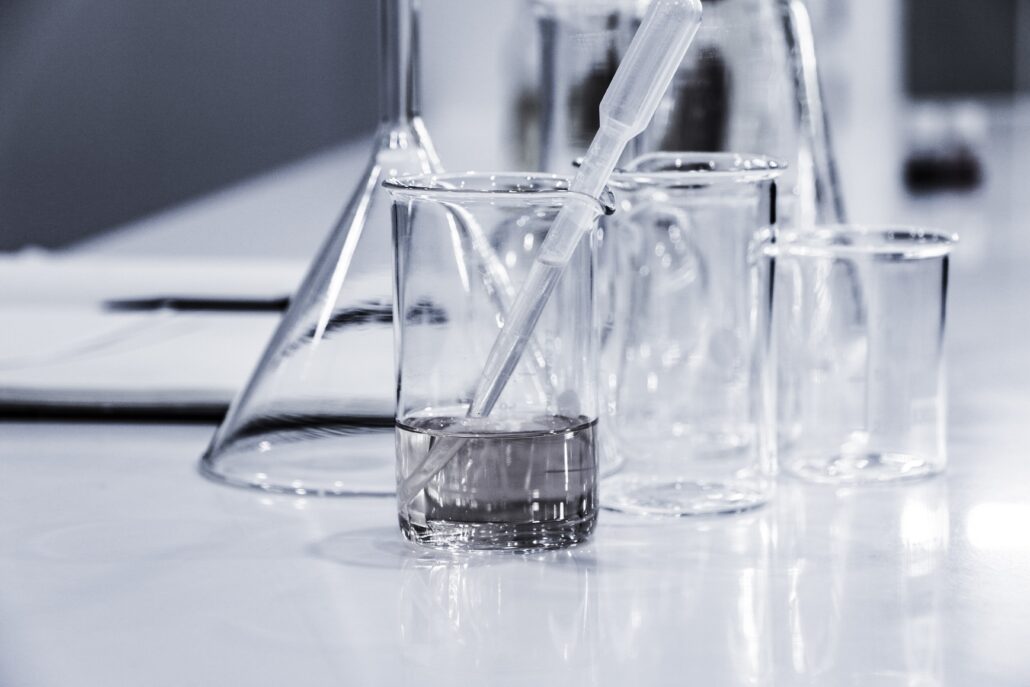 Your results are dependent on many factors. First, you truly only want to take peptides under the supervision of a medical practitioner as a part of a larger weight management plan. The number one thing to do is to really manage your diet and cook your own food so you can control what you’re eating. It’s been said that great abs are made in the kitchen, and the same is true of our overall health: it all starts with what’s on your fork. As exciting and effective as peptide therapy can be, it’s no magic wand.
Your results are dependent on many factors. First, you truly only want to take peptides under the supervision of a medical practitioner as a part of a larger weight management plan. The number one thing to do is to really manage your diet and cook your own food so you can control what you’re eating. It’s been said that great abs are made in the kitchen, and the same is true of our overall health: it all starts with what’s on your fork. As exciting and effective as peptide therapy can be, it’s no magic wand.
Balancing your other hormone levels is important, too. When you optimize your testosterone and thyroid levels, you will experience a lot of synergistic effects. If you have all that dialed in, you’re eating well and you’re sleeping eight hours per night, you could see results within a few weeks, especially with Tesamorelin. Ipamorelin is a more gentle peptide that may take 3-6 months to begin to show its effect.
Speak to your doctor about specific dosing and the right peptide for your goals.
We’ve discussed some of the benefits of peptides and some of them seem miraculous. Outside of weight loss and muscle gain, studies show faster healing, more energy, improved sleep and even increased libido. The growth hormone levels we produce decreases as we age (30% by age 50, and 50% by age 70), so peptides may even help with neurological function, possibly preventing Alzheimers.
Used incorrectly though, peptides have the potential to cause side effects of varying degrees.
Side Effects of Peptides
For healthy individuals, peptide supplements are unlikely to cause serious side effects because they are similar to the peptides present in everyday foods. That said, as with any treatment it’s always wise to exercise caution in tandem with your doctor.
No studies have shown peptides to have any carcinogenic effects, however if you have any pre-existing medical conditions you could be at risk of adverse effects or interactions with other medications.
How to Purchase Peptides
You may be wondering if you can just purchase peptides from a store or the internet.
You can, but it’s really important to remember that there can be some questionable manufacturers that make it tough to sort out which are good and which are not.
The purity of products is a critical aspect to peptide therapy – and that means that without knowing for sure, you could run the risk of sub-par or ineffective compounds.
Quality control can be an issue for the every day buyer, therefore you could potentially purchase contaminated or dangerous compounds manufacturers have created without regulation.
In the United States, only a few compound pharmacies actually create these peptide supplements due to state restrictions. The FDA does not currently regulate supplements in the same way as with traditional medications, so it’s important that you apply awareness to that and exercise caution by running it past your doctor in advance.
At the Gapin Institute we prescribe peptide therapy and can create a well-balanced treatment plan for you. Remember, peptides are not a fix-all. They don’t replace good nutrition, sleep, stress management, fitness, etc.. In a sense, peptides are the icing on the cake.
Want the Ultimate Peptide Guide? Click HERE.
Conclusion
Peptides and peptide therapy are cutting-edge tools. You can use them to optimize your health, slow the aging process, and reduce inflammation. Learning new ways to target and use peptides, polypeptides and proteins helps you move away from disease and towards better health.
If you’re interested in radically upgrading your health, you’ll want to keep a close eye on the power of peptides and consider adding these therapies to your regimen. After all, when it comes to living a better life for a longer span of time, we’re looking at brand new ways to do just that – and the sky’s the limit.
The best place to start if you want a hormonal optimization or peptide program is by seeing a physician first.
Gapin Institute is currently accepting new clients. If you are tired of being tired… or you have tried everything to lose that unwanted weight but nothing seems to be working, our Peptide therapy might be the piece to the puzzle that you are missing. Call us today to schedule your consultation. (941) 263-0212.
Upgrade to Male 2.0™– Schedule a Consult!
You’ll get access to a genetic-based report and analysis, along with a private consultation that will put you on track to your ultimate health.
With the Male 2.0 Method, I test your DNA, interpret the results, and create a customized strategy just for you. This plan is specific to YOUR individual genes and lifestyle. It will improve every area of your life, from your health and professional productivity to your overall longevity and total wellbeing.
Ready to take the next steps?
Download the Blueprint
Schedule a Call
**************************
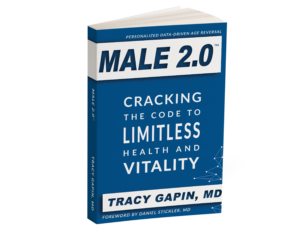 In Male 2.0™, Dr. Tracy Gapin has turned everything we once thought we knew about men’s health and performance upside down. The old model of how to be “a man” is broken. A man who works himself to death. A man who tries to NOT get sick but isn’t really healthy either. A man who takes a pill for every ill but is never really cured. That was Male 1.0. Now, imagine being THE MAN ─ owning your performance in the bedroom, the weight room, and the boardroom. Living a fully optimized life. Becoming limitless. This is Male 2.0!
In Male 2.0™, Dr. Tracy Gapin has turned everything we once thought we knew about men’s health and performance upside down. The old model of how to be “a man” is broken. A man who works himself to death. A man who tries to NOT get sick but isn’t really healthy either. A man who takes a pill for every ill but is never really cured. That was Male 1.0. Now, imagine being THE MAN ─ owning your performance in the bedroom, the weight room, and the boardroom. Living a fully optimized life. Becoming limitless. This is Male 2.0!
Tracy Gapin, MD, FACS is a board-certified Urologist, Men’s Health Expert, Author, and Professional Speaker. Using state-of-the-art biometric monitoring, nutrition and lifestyle intervention, Dr. Gapin coaches Fortune 500 executives and evolutionary leaders of business, sports medicine, and high performance. He specializes in cutting-edge precision medicine with an emphasis on epigenetics, providing men with a personalized path to optimizing health & performance.


